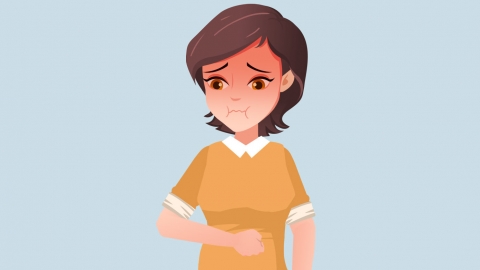What are the symptoms of bile reflux?
Under normal circumstances, symptoms of bile reflux mainly affect the digestive tract, particularly manifesting as upper abdominal discomfort and esophageal irritation. Common symptoms include a burning sensation in the upper abdomen, acid regurgitation, bitter taste in the mouth, nausea and vomiting, and bloating or pain in the upper abdomen. A detailed analysis is as follows:

1. Burning sensation in the upper abdomen: Patients often experience a burning feeling in the upper abdomen, typically occurring 30 minutes to one hour after meals. Symptoms may worsen when bending over or lying flat. This is due to bile reflux irritating the gastric and esophageal mucosa, causing mucosal damage and local inflammatory reactions, leading to a burning discomfort.
2. Acid regurgitation: Patients frequently experience acid regurgitation, with a sensation that stomach contents are rising into the esophagus or even the mouth, sometimes accompanied by a sour or bitter taste. Regurgitation often occurs after consuming greasy foods, during emotional fluctuations, or immediately after lying down post-meal. In severe cases, it can interfere with eating and sleep.
3. Bitter taste in the mouth: Due to bile reflux reaching the esophagus or even the oral cavity, patients often feel a persistent bitter taste, especially noticeable upon waking or after meals. This bitterness may impair taste perception and lead to decreased appetite.
4. Nausea and vomiting: Some patients experience nausea, which in severe cases may lead to vomiting. The vomitus usually consists of stomach contents and may occasionally contain yellowish-green bile. Although nausea may temporarily subside after vomiting, it tends to recur shortly afterward.
5. Upper abdominal bloating and pain: Patients may feel bloating or pain in the upper abdomen, varying in intensity from mild dull ache to distension or钝痛 (dull pain). The pain is typically localized below the xiphoid process or above the umbilicus and may worsen after eating.
When experiencing symptoms related to bile reflux, it's important to adjust lifestyle habits—avoid lying down immediately after meals and consider elevating the head of the bed during sleep. Dietary modifications include reducing intake of oily, spicy, and overly sweet foods, and avoiding overeating.









